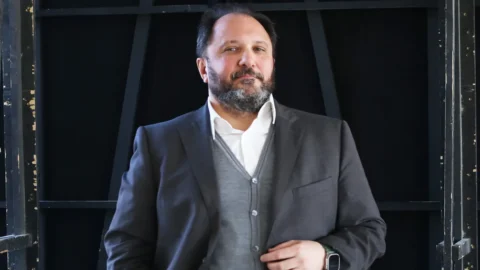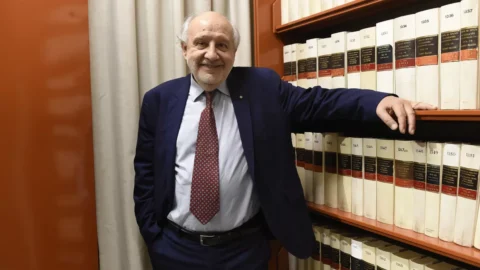On Ilva "I don't feel part of a muscle test between institutional levels". And again: “Using a judicial appeal as a weapon of pressure is illogical and dangerous. If you don't turn the page, only the territories will pay". These two sentences, pronounced by Teresa Bellanova during this interview with FIRSTonline, are enough to understand who is in front of you. She has been the Deputy Minister for Economic Development since 2016 (she was previously Undersecretary of Labor in the Renzi government), in the front row of all the most difficult and thorny disputes. She, who cut her teeth in the CGIL first with laborers and then in the textile industry, has followed one by one hundreds of crisis situations, experiencing first-hand the ferocious impact of the toughest post-war economic recession. L'Ilva is the last and perhaps the most important thorn in the side; others preceded it and were resolved: from Electrolux to Whirlpool; others are still open as Alitalia. Bellanova is not the type to chase the spotlight, he rather focuses on "concreteness and rigor" as he tells us in this chat that takes stock of the year that ended and the new one that opens and will still see her in government pending the elections . Or maybe even a little further. Looking at the legislature which is closing, he is proud of the law on living wills and on the ius soli he warns: “It is a law of civilization. Building fences only feeds fear and resentment. It's not the world I want to hand over to my son."
Deputy Minister Bellanova, Ilva's fate hangs in the balance. The waiver of the request for suspension by the Puglia Region in the last few hours has a relaxing value but does not cancel the appeal to the TAR. How to get out of the impasse in view of 10 January when should the table between the new buyers and the unions resume?
"You exit fromimpasse moving forward not the conflict but co-responsibility and institutional collaboration, rigor and concreteness. It is the only way that I know of and which has allowed the management of very complicated and apparently unsolvable crisis tables in recent years.
“We can be distant on everything but not on the need to secure a negotiation whose stake is an investment of over five billion euros which guarantees an environmental program like never before. I stick to the facts: the negotiation between the company, the extraordinary administration and the social partners restarted to everyone's satisfaction on December 22nd and a very tight calendar awaits us with thematic tables for each site. I don't feel part of a muscle test between institutional levels, I'm interested in the fate of the communities involved, of the twenty thousand workers and their families, of the associated companies. I am interested in the protection of health and the environment, which only in this way can find a broad response and prevent Ilva, and in particular in Taranto, from remaining only an open-air industrial cemetery. Using a judicial appeal as a weapon of pressure is illogical and dangerous. If you don't move on, only territories, workers, citizens, cities, the environment, health will pay. A responsibility that I don't want to have on my conscience".
The ordeal of steel, as someone has defined it, is the mirror of an Italy blocked by vetoes and localisms. The Tap gas pipeline is also blocked in Puglia at Melendugno while Turkey, Greece and Albania continue at a fast pace. Both Ilva and Tap are in Puglia. A coincidence?
"Ilva and Tap are two different and distinct issues and it is good that they remain so. The less confusion we feed the better. The Trans Adriatic Pipeline was born with the Monti and Letta governments, it had a genesis that contemplated the confrontation between all institutional levels even though it was considered a strategic infrastructure of national interest, it is consistent with the national energy strategy which aims to intensify the supply energy from renewable sources, identifying gas as the middle way to get there. Anyone who reduces the national energy issue to a condominium dispute by blowing on the fears of citizens does not know what he is talking about".
Provincialism?
“Foreign policy and energy policy are held together, the diversification of sources has to do with national energy security and with very delicate geopolitical balances. Responsibility of the institutional and decision-making chain does not mean acquiescence but responsible governance of issues and conflicts. For Puglia also the awareness of what it means to be a large quay stretched out towards the southeast to transform this vocation into a resource and not into a catastrophe.
“This is valid for Taranto and not only for Ilva but also for the port and ports of Puglia, for container traffic, for passenger traffic. Questions to be addressed rather than with rhetorical litanies in concrete practice, knowing full well that without development no environment can be saved and no development can be created without environmental protection. We are no longer in the 50s”.
First as undersecretary and then as deputy minister, you have followed all the most difficult industrial crises of recent years. What balance can be drawn?
"If we look at the last few years, we count 196 cases closed positively, equal to about 60% of the overall ones closed. A significant percentage that includes some of the most important industrial events of recent years. Electrolux, Ast, Whirlpool, Meridiana, Bridgestone, Industria Italiana Autobus, and many others. Thousands of jobs safeguarded and recovered. There are many successful cases, and all of them important, even if naturally not with the same media resonance".
We can now consider the crisis behind us even if not all cases can be said to be solved and concluded. 2017 was a bridge year towards a recovery that appears to be well underway. What can we expect for 2018?
"We have industrial crises on which we will continue our commitment and work and which mean thousands and thousands of jobs. Ilva, Alitalia, Piombino, Ericsson, Ideal Standard, just to name a few. But we also have a large number of indicators that confirm us in the strategy implemented in recent years: recovery of employment and increase in female and youth employment, business confidence, consumer confidence, orders, exports. Not letting your guard down is essential and so working to ensure two fundamental conditions: keeping growth and inclusion together, broadly extending the results achieved by large companies to the backbone of small and very small businesses. To prevent territories with two or even more speeds, think ever more markedly in terms of the country-system, leverage the molecular nature of excellence. Innovation is also fundamental in small and medium-sized enterprises, as well as a training system not only for workers but also for managers and entrepreneurs and the strengthening of active policies”.
You make it clear that it would be advisable to involve more and more small and medium-sized enterprises in policies to support innovation...
“We come from a past in which competitive devaluation was leveraged to compete. Then we imagined that we could withstand the impact of globalization by acting on labor costs, using social incentives and safety nets such as an ATM. Those who have survived, those who have saved themselves by gaining in quality and excellence have done so by fleeing from these dynamics. It is an important lesson that we should value more and extend widely. It is no coincidence that the recently approved budget law establishes a Fund for the development of intangible capital, competitiveness and productivity with a budget of 5 million for 2018, 125 for 2019 and 175 from 2020. And, for Southern Italy, we set up the Southern Business Fund aimed at the growth in size of small and medium-sized companies".
Looking to the future, you will still be in government next year as the executive will not resign: the incentive system has worked to businesses? Or has the time come to make a "service" of the tools made available by the state?
"The incentives worked because they were targeted and had targeted, precise and measurable objectives. It is important, when using public resources, to be very careful about who is disbursed and why. For too many years money has rained down, not only in the South, with a use that is not always transparent. We are full of unused warehouses and infrastructured but uninhabited areas. More than Industry 4.0 I speak of Enterprise 4.0 or Agriculture 4.0 because innovation is either everywhere or it isn't. Only in this way can we challenge laziness and recover that taste for doing things well that characterizes our Made in Italy, our manufacturing. I'm not just talking about patents but also about incremental innovation that we need to be able to support and nurture. Refine the tools of knowledge, management and control becomes essential. Cutting tools is appropriate, I would say mandatory, reducing the audience if necessary, to make them truly consistent with the needs of quality in employment, in companies, in products, on the markets”.
Finally one last question. You met and married a Moroccan citizen in Italy, an interpreter. In the light of your personal experience and your political convictions, what do you feel like saying to the Italians – they would be 53%, according to the latest polls – against the ius alone?
"Lo ius soli it is a rule of civilization: only a terrain in which recognition of the other and differences are maintained by fueling mutual knowledge and respect is the best antidote to terrorism and racial hatred. In this case, moreover, we are talking about boys and girls who have lived in Italy for years, side by side with our children. The rule on the ius soli or ius culturae or ius temperate was the object, like civil unions in the past, of a wicked political campaign aimed exclusively at fueling fears and grievances, that grievance that Censis warns us will be decisive in political choices and constituencies in the next elections. To say that the ius alone aimed at legalizing illegal immigration is a clear distortion not only of the spirit of the law but of the most basic common sense.
“To that 53% I would say this: whoever builds fences for others also builds fences for themselves, maybe golden and fake safe but always fences. A deadly dynamic that has nothing to do with safety and which, on the contrary, fuels insecurities, fears, ignorance, hatred, resentment to excess. It's not the world I want to hand over to my son. And for this reason, let me tell you, I am proud of the work done during this legislature and of the objectives achieved precisely in the field of civil rights. The last milestone was the living will. The applause that welcomed the approval of the law in the Senate speaks more than a thousand words”.





